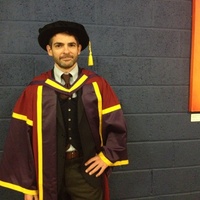
Anna Carabelli
Address: Italy
less
Related Authors
Michiru Nagatsu
University of Helsinki
Don Ross
University College Cork
Vincenzo Bavoso
The University of Manchester
Pier Giuseppe Monateri
Università degli Studi di Torino
David Seamon
Kansas State University
Maria Brincker
University of Massachusetts, Boston
Armando Marques-Guedes
UNL - New University of Lisbon
Bronwyn Hall
University of California, Berkeley
Miranda del Corral
CONICET
Mauro Grondona
University of Genova
InterestsView All (9)










Uploads
Papers by Anna Carabelli
Anna Carabelli sets out Keynes’s understanding of economics as a way of thinking, encompassing method and morals, rather than as a doctrine. She does so with her customary admirable scholarship and also her willingness to take controversial positions. I commend the volume most highly to Keynes scholars as a drawing-together and development of the themes that Carabelli has pursued since the publication of her 1988 classic, On Keynes’s Method. Further Keynes’s approach was designed to be applied to different contexts, so I enthusiastically recommend the volume also as a foundation and guide for anyone open to such a ‘new way of reasoning in economics’ for the modern era. Sheila Dow, University of Stirling
This book examines the philosophy and methodology of Keynes, highlighting its novelty and how it presented a new form of economic reasoning. Exploring Keynes’s use of non-demonstrative logic, based on probability, commonalities are found in his economics, ethics, aesthetics, and international relations. Insights are provided into his reasoning and his approach to uncertainty, rationality, measurability of complex magnitudes, moral and rational dilemmas, and irreducible conflicts.
This book investigates methodological continuity within Keynes’s work, in particular in relation to uncertainty, complexity, incommensurability, happiness and openness. It will be relevant to students and researchers interested in Keynes, probability, ambiguity, ethics and the history of economic thought.